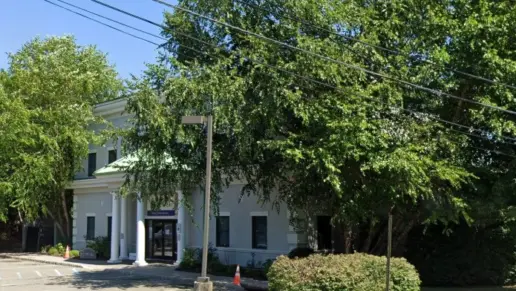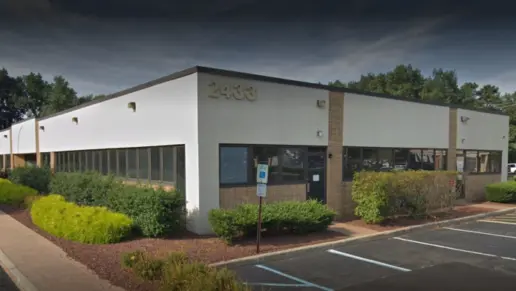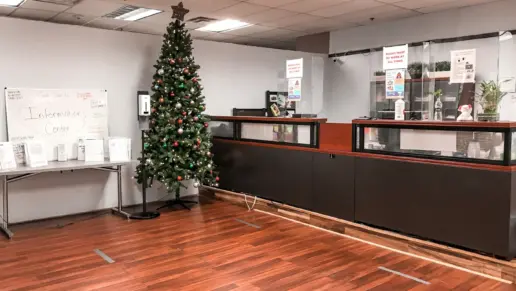My son was struggling with anxiety and his mental health and a friend of his referred him to High Focus. I am so glad that he went there and was able to get the help that he needed. He has completed the program and is in a much better place. I am grateful for everyone the ...
About High Focus Centers
High Focus Centers is a mental health and addiction treatment center for teenagers and adults in Lawrenceville, New Jersey. They offer outpatient services for people who are struggling with mental health disorders, psychiatric conditions, and co-occurring issues, including substance abuse. You must be at least 10 years old to participate in their treatments. Their programs are age specific and are tailored to each client’s individual care plan. They accept self payment, private insurance, and military benefits.
Their outpatient programs vary by intensity. The most intensive is the partial hospitalization program, followed by intensive outpatient care. Partial hospitalization clients meet daily and participate on a full time basis. During your time on site, you’ll participate in group and individual therapy, psychoeducation, and life skills training to help you develop the capabilities you’ll need to live a life of recovery.
If you’re ready to step down to a less intensive level of care, their intensive outpatient treatment is a little more flexible. You can attend during the day or at night depending on what works for your schedule, and it’s considered a part time program. Something unique about this facility is that in addition to one on one and group counseling sessions, they also offer special recovery services for designated populations, including members of the LGBTQ+ community and clients who are dealing with grief.
One past client said her therapist was positive, upbeat, and kind, which helped her get through some of her darkest days. Another client said the team saved their life and gave them a wealth of knowledge that they can carry with them forever.
Rehab Score
Gallery
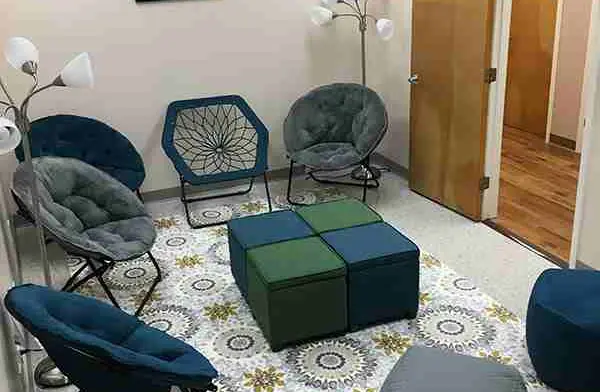
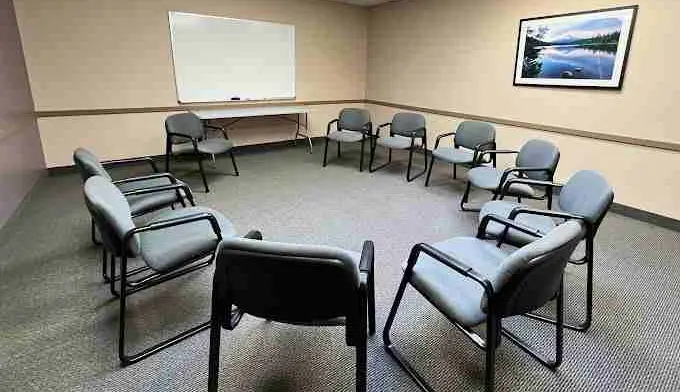
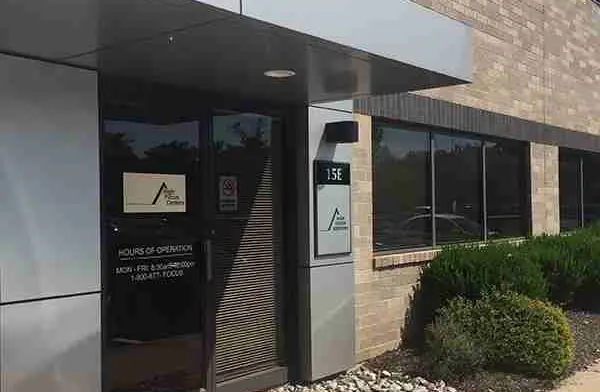
Location
Accepted Insurance
Other Forms of Payment
Private insurance refers to any kind of healthcare coverage that isn't from the state or federal government. This includes individual and family plans offered by an employer or purchased from the Insurance Marketplace. Every plan will have different requirements and out of pocket costs so be sure to get the full details before you start treatment.
Self-pay involves paying for treatment out of your own pocket. You can use savings or credit, get a personal loan, or receive help from family and friends to fund your treatment. If you don't have insurance or your insurance plan doesn't cover a specific program, self-pay can help ensure you still get the care you need.
Military members, veterans, and eligible dependents have access to specific insurance programs that help them get the care they need. TRICARE and VA insurance can help you access low cost or no cost addiction and mental health treatment. Programs that accept military insurance often have targeted treatment focused on the unique challenges military members, veterans, and their families face.
Medicaid is a state based program that helps lower-income individuals and families pay for healthcare. Medicaid covers addiction treatment so those enrolled can use their coverage to pay for rehab. When a program accepts Medicaid the client often pays very little or nothing out of their own pocket.
Addiction Treatments
Levels of Care
Treatments
The goal of treatment for alcoholism is abstinence. Those with poor social support, poor motivation, or psychiatric disorders tend to relapse within a few years of treatment. For these people, success is measured by longer periods of abstinence, reduced use of alcohol, better health, and improved social functioning. Recovery and Maintenance are usually based on 12 step programs and AA meetings.
Drug rehab in New Jersey is the process of addressing the complex issues involved with addiction. Challenges are identified and addressed through individual and group counseling. Participants learn how to manage these issues without the use of substances.
Many individuals suffer from both substance abuse and psychiatric disorders simultaneously. The initial assessment at High Focus is designed to identify the nuances that these patients present and offer a proper diagnosis so that the optimal treatment course can be pursued. A comprehensive program has been designed for individuals with a dual diagnosis which includes a weekly psychiatry session, a specialized psycho-educational curriculum designed specifically for the co-occurring population, group therapy interventions and DBT skills training. Co-occurring patients are given random, supervised drug screens.
A combined mental health and substance abuse rehab has the staff and resources available to handle individuals with both mental health and substance abuse issues. It can be challenging to determine where a specific symptom stems from (a mental health issue or an issue related to substance abuse), so mental health and substance abuse professionals are helpful in detangling symptoms and keeping treatment on track.
Opioid rehabs specialize in supporting those recovering from opioid addiction. They treat those suffering from addiction to illegal opioids like heroin, as well as prescription drugs like oxycodone. These centers typically combine both physical as well as mental and emotional support to help stop addiction. Physical support often includes medical detox and subsequent medical support (including medication), and mental support includes in-depth therapy to address the underlying causes of addiction.
Programs


Clinical Services
Animal therapy (aka pet therapy or animal-assisted therapy) can be very healing, as it allows patients to bond with animals, who give unconditional love. This is particularly useful for those who suffered trauma by the hands of people, who may be able to trust and form closer attachments to animals than humans at certain stages of rehabilitation.
Cognitive Behavioral Therapy (CBT) is a therapy modality that focuses on the relationship between one's thoughts, feelings, and behaviors. It is used to establish and allow for healthy responses to thoughts and feelings (instead of unhealthy responses, like using drugs or alcohol). CBT has been proven effective for recovering addicts of all kinds, and is used to strengthen a patient's own self-awareness and ability to self-regulate. CBT allows individuals to monitor their own emotional state, become more adept at communicating with others, and manage stress without needing to engage in substance abuse.
Creativity is inherently healing, and can help those in recovery express thoughts or feelings they might not otherwise be able to. Creative arts therapy can include music, poetry/writing, painting, sculpting, dance, theater, sandplay, and more. Unlike traditional art, the final product matters far less than the experience of creation and expression itself.
Dialectical Behavior Therapy (DBT) is a modified form of Cognitive Behavioral Therapy (CBT), a treatment designed to help people understand and ultimately affect the relationship between their thoughts, feelings, and behaviors. Patients are taught Dialectical Behavior Therapy skills (DBT) to help improve with emotional regulation, interpersonal effectiveness, and distress tolerance, and receive a psychiatry session every week.
Experiential therapy is a form of therapy in which clients are encouraged to surface and work through subconscious issues by engaging in real-time experiences. Experiential therapy departs from traditional talk therapy by involving the body, and having clients engage in activities, movements, and physical and emotional expression. This can involve role-play or using props (which can include other people). Experiential therapy can help people process trauma, memories, and emotion quickly, deeply, and in a lasting fashion, leading to substantial and impactful healing.
Research clearly demonstrates that recovery is far more successful and sustainable when loved ones like family members participate in rehab and substance abuse treatment. Genetic factors may be at play when it comes to drug and alcohol addiction, as well as mental health issues. Family dynamics often play a critical role in addiction triggers, and if properly educated, family members can be a strong source of support when it comes to rehabilitation.
Group therapy is any therapeutic work that happens in a group (not one-on-one). There are a number of different group therapy modalities, including support groups, experiential therapy, psycho-education, and more. Group therapy involves treatment as well as processing interaction between group members.
In individual therapy, a patient meets one-on-one with a trained psychologist or counselor. Therapy is a pivotal part of effective substance abuse treatment, as it often covers root causes of addiction, including challenges faced by the patient in their social, family, and work/school life.
The Trauma Intensive Outpatient Program (IOP) treats adults who have experienced a recent traumatic event, as well as those whose past history of trauma contributes to ongoing psychiatric symptoms or PTSD (Posttraumatic Stress Disorder). Structured as an IOP, the Trauma Program at High Focus Centers provides a level of care that is higher than traditional outpatient services. The Trauma Program is meant to complement longer term individual or group therapy for trauma or PTSD, either as an initial treatment experience, or as an alternative to traditional outpatient therapy during a period of heightened symptoms.
Amenities
-
Private Setting
-
Yoga Studio
Accreditations

The Joint Commission, formerly known as JCAHO, is a nonprofit organization that accredits rehab organizations and programs. Founded in 1951, the Joint Commision's mission is to improve the quality of patient care and demonstrating the quality of patient care.
Joint Commission Accreditation: Yes
Contact Information
15 Princess Road
Lawrenceville NJ, 08648

